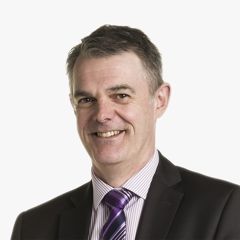
Weightmans helps organisation show how the law can help make parks more inclusive
Parks and public spaces don’t work for teenage girls, say campaigning charity Make Space for Girls.
Up and down the country, outdoors facilities for teenagers are mostly used by boys, and girls end up with nowhere to go.
“Facilities for teenagers almost always means a skate park or a fenced pitch, which tend to be dominated by boys.” says Make Space for Girls co-founder Susannah Walker. “This discrimination often goes unnoticed — but that’s what we want to change.”
This kind of structural inequality is what the Public Sector Equality Duty (part of the Equality Act 2010) is designed to address, by encouraging public bodies to consider potential discrimination in their decision making. Imogen Clark is the other co-founder of Make Space for Girls and she thinks the duty has an important role to play.
“Once councils become aware of the discrimination, most want to change things. The PSED provides a great framework to support this. But when we talk to councillors we get asked a lot of questions about how the duty works for parks and public spaces. So we are delighted to have teamed up with national law firm Weightmans to produce a note to respond to some of these.”
The note covers all the most common questions and sets out how the PSED applies to facilities for teenagers and how councils can use it in practice to create parks and public spaces which work better for all teenagers.
Simon Goacher, Partner at Weightmans who assisted with the project said:
“At Weightmans, we have worked hard to create an inclusive environment for all our colleagues, and equality remains a key priority. “We are pleased to have been able to support Make Space for Girls with this advice note for local authorities on PSED, which we hope offers some clarity on how it can be used to develop and deliver accessible and safe facilities for girls within the community. I would urge any council seeking guidance on the application of PSED to contact the firm and we can offer specific advice for your circumstances.”
Suzan Yildiz, Principal Associate at Weightmans advising on planning law, added:
“I am excited to support this forward-thinking initiative. Consciously integrating inclusive design and PSED into policy, placemaking and regeneration is a significant part of our role when we advise public sector bodies or developers. "The fact is men and women, the able bodied and disabled experience public space and facilities differently. Historic design solutions have placed primacy on property and business needs rather than wellbeing and diversity. Through the PSED policy, design and place-making can consciously equalise the playing field. As planning professionals, we can be positive influencers in creating places where all users male or female, able bodied or not can thrive." “We’re really grateful that Weightmans have partnered with us,” says Clark. “The Public Sector Equality Duty is a great tool, and this note will help councils use it to create better facilities for teenage girls.”




